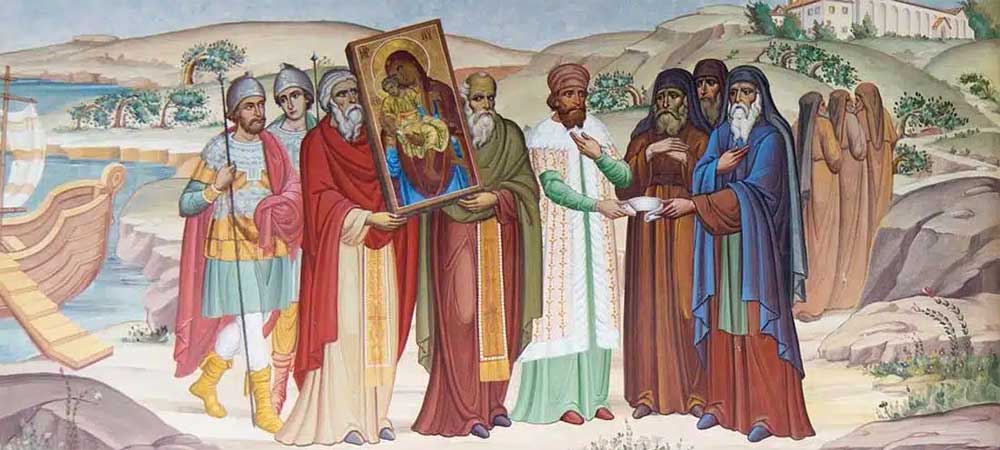Life and Martyrdom of Saint Natalia
 Saint Natalia is a Christian saint celebrated in various traditions, though details about her life are primarily known through hagiographies that blend history and legend. She lived during the early 4th century and is most commonly associated with her husband, Saint Adrian or Hadrian.
Saint Natalia is a Christian saint celebrated in various traditions, though details about her life are primarily known through hagiographies that blend history and legend. She lived during the early 4th century and is most commonly associated with her husband, Saint Adrian or Hadrian.
Their story is centered around their faith and martyrdom during the Diocletianic Persecution, a period of intense Christian persecution under the Roman Emperor Diocletian.
Natalia was married to Adrian, an officer in the Roman Empire at Nicomedia (present-day İzmit, Turkey). According to tradition, Adrian was impressed by the faith and resilience of Christian prisoners he was tasked with torturing and, as a result, converted to Christianity. Natalia, who was already a Christian secretly, supported his conversion.
When Adrian declared his faith, he was arrested and imprisoned. Natalia visited him in prison, encouraged his steadfastness, and ministered to other Christians who were imprisoned with him. She is said to have played a significant role in strengthening the resolve of these believers during their persecution.
The account of their martyrdom includes Adrian being subjected to severe tortures. Natalia is said to have remained by his side, comforting him until he died. After his death, she preserved his severed hand as a relic. Natalia herself passed away peacefully shortly thereafter, though some accounts suggest she also died as a martyr.
Saint Natalia is venerated on different days in various Christian denominations. The Roman Catholic Church celebrates her feast day on September 8, along with her husband, Saint Adrian. In the Eastern Orthodox Church, they are commemorated on August 26.
Saint Natalia is often depicted in religious art holding the severed hand of her husband, symbolizing her devotion and the courage they both displayed in the face of persecution. She is considered a patron saint of torture victims and a model of marital support and faithfulness.
Her story exemplifies the Christian virtues of loyalty, both to faith and to marital vows, under extreme adversity. Her veneration reflects an acknowledgment of her spiritual strength and the support she provided to her community of believers.
